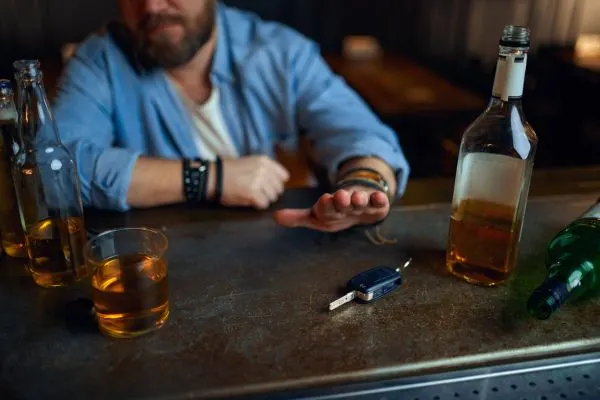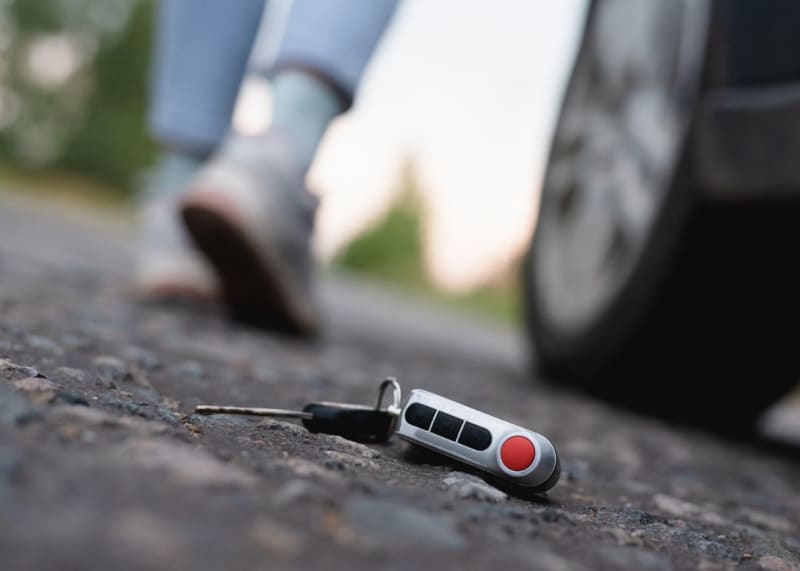If you’ve been arrested for a DUI in Illinois, one of your biggest concerns is likely how long your valid license will be suspended. The length of your suspension depends on several factors, including whether it’s your first-time DUI offender case or a subsequent offense, as well as the influence of alcohol at the time of your arrest. Your driving record also plays a role in determining the severity of penalties.
When police officers pull someone over for suspected DUI, they typically conduct field sobriety tests and blood alcohol testing to check for a blood alcohol concentration above the legal limit of 0.08%. If you are arrested, you may be taken to the police station for additional testing. Refusing to comply with chemical testing might seem like a bad idea, but in some cases, it could prevent the prosecution from having direct BAC evidence against you. However, refusal triggers an automatic license suspension, which leads to an impending suspension of your driving privileges.
Understanding the consequences of license suspension and the legal steps involved in regaining your driving privileges is crucial. A defense attorney can help you navigate the legal system, challenge the suspension, and work toward minimizing its impact on your life. If you’re facing a DUI-related suspension, seeking legal counsel as soon as possible can make a significant difference in your case.
DUI lawyer costs can vary—see what you should expect to pay.
Statutory Summary Suspension (Administrative Suspension)
A statutory suspension is an automatic suspension that takes effect after a DUI arrest. This is a form of administrative license suspension, meaning it occurs independently of any criminal conviction. Many people assume it’s the result of a DUI conviction, but in reality, it is imposed based on blood alcohol testing results or refusal.
After your DUI arrest, you will receive a notice of suspension, which serves as official notification of the impending suspension of your valid license. The notice of suspension also explains your right to request an administrative hearing to challenge the decision. The statutory suspension begins 46 days after the notice of suspension is issued, giving you a period of time to prepare your defense.
You can contest the suspension by requesting an administrative license suspension hearing before the Illinois Secretary of State. At this hearing, you may present evidence, question the legality of the traffic stop, or challenge any errors in chemical testing procedures. If you fail to request a hearing within the allowed period, your suspension will take full effect, and you won’t have the chance to dispute it. Consulting a defense lawyer early in the process can improve your chances of a favorable outcome.
Duration Based on Offense and Test Results
The length of a DUI-related suspension in Illinois varies based on whether it’s your first-time offender case or a subsequent offense, as well as whether you complied with or refused chemical testing. Below is a breakdown of potential suspension durations.
First Offense License Suspension
For a first-time DUI offender, the 1st offense license suspension depends on whether they refused testing or failed the BAC test.
- Refusal to Submit to Testing: If you refuse chemical tests such as a breath test, blood test, or urine test, your valid license will be suspended for a 12-month period. Even if your DUI charge is later dismissed, the statutory suspension still applies. Some may think refusing the test is a bad idea, but it can limit the prosecution’s evidence. However, the consequences of license suspension can be disruptive, affecting your ability to work and handle daily responsibilities.
- Failure of Testing (BAC of 0.08% or higher): If your blood alcohol level is 0.08% or higher, you will receive a 6-month suspension. While this is shorter than a 12-month suspension, it still results in the loss of driving privileges, making daily transportation challenging. You may be eligible for a restricted driving permit after a certain period, but only if you can show that you’ve made progress in alcohol treatment counseling or completed a rehabilitation program.

Second or Subsequent Offenses
For a subsequent offense, penalties are much harsher, with longer suspension periods for both test refusal and test failure.
- Refusal to Submit to Testing: If you refuse blood alcohol testing after a subsequent offense, your valid license will be suspended for 36 months. This prolonged DUI-related suspension can severely impact your ability to work and maintain daily activities. If you complete alcohol treatment counseling, you might be eligible for limited driving privileges after some time.
- Failure of Testing (BAC of 0.08% or higher): If your BAC is 0.08% or higher according to the breathalyzer test for a second or subsequent offense, your license will be suspended for 12 months. For repeat offenders, there are often stricter requirements for reinstatement, including the completion of an alcohol treatment program.
Regardless of whether your suspension is a 6-month suspension, 12-month license suspension, or 36 months, understanding your rights and working with a DUI defense lawyer can help you minimize the suspension time and explore options for restricted driving privileges.
License Revocation (Criminal Penalty)
Unlike an administrative license suspension, which is temporary, a criminal penalty license suspension or revocation is a permanent loss of driving privileges that follows a DUI conviction. Regaining your license after revocation requires a formal reinstatement process, including hearings, fees, and rehabilitation proof.
Duration Based on Number of Offenses
The length of your driving record revocation increases with each conviction:
- First Conviction: 1-year revocation
- Second Conviction (within 20 years of the first): 5-year revocation
- Third Conviction: 10-year revocation
- Fourth or Subsequent Conviction: Lifetime revocation
Reinstatement Process
To regain driving privileges, offenders must install a device driving permit system, such as a Breath Alcohol Ignition Interlock Device (BAIID), pay reinstatement fees, and complete DUI education programs. T
he process can be complex, but a defense attorney can help navigate requirements and work to restore limited driving privileges sooner. For many, completing an alcohol treatment counseling or alcohol counseling program is a crucial step in obtaining reinstatement, especially after multiple offenses.
How a DUI Lawyer Can Help with License Suspension and Revocation
A defense lawyer is essential when dealing with a DUI-related suspension. They can challenge the charges, represent you at hearings, and help you secure a device driving permit to regain limited driving privileges.
Navigating Administrative Procedures
DUI cases involve both criminal and administrative penalties. A defense attorney ensures you meet deadlines, file for hearings, and take necessary steps to avoid extended suspensions. Missing deadlines could result in a longer minimum suspension time, making legal guidance crucial.
If you are eligible for a temporary driving permit, a license reinstatement attorney will also be able to help you manage the process to apply for one.
Challenging the Suspension
If you believe your suspension is unfair, a defense lawyer can file motions to challenge it. They will investigate whether the police officers had probable cause for the stop, if proper blood alcohol testing procedures were followed, and if legal requirements were met. Successfully disputing any inconsistencies can lead to reduced or dismissed suspensions. Furthermore, completing a community service requirement may sometimes be part of the penalties imposed, depending on the circumstances of the arrest and the court’s decision.
Conclusion
A DUI arrest in Illinois can lead to different kinds of license suspensions, including a 6-month suspension, a 12-month license suspension, or even permanent revocation. Whether facing an automatic suspension, DUI-related suspension, or criminal penalty license suspension, it’s essential to understand your rights and explore legal options.
A defense lawyer can help reduce penalties, fight suspensions, and guide you through the reinstatement process. If you’re facing an impending suspension, don’t wait; contact us today to protect your driving rights and take control of your future. Alcohol treatment counseling may be required to restore your privileges, and a lawyer can help you explore all available options, including eligibility for a restricted driving permit or fulfilling community service requirements.


